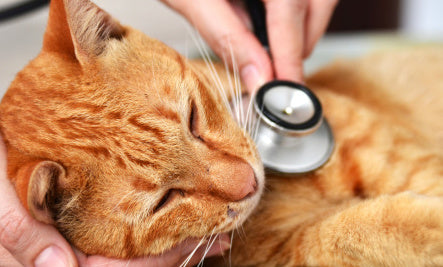Cats are masters at hiding signs of illness; therefore, it is up to the cat owner to know what to look for. Any changes in your cat’s normal behavior, routine, and attitude can be the first indicator that something is wrong with your feline companion. The owners often do not realize that problems can develop slowly and cats do not show symptoms of the problem until it is already advanced. Early detection of any illness is important, as there is a much better chance that it can be treated successfully. You can detect following ten warning signs in your cat which show your cat is not well:
1. Changes in appetite
If cat suddenly refuses to eat or starts eating voraciously, it can be an indicator of a problem in your cat. The anorexia (not eating) is dangerous in the cats and it can lead to hepatic lipidosis, which is a life threatening form of liver disease.
2. Bad breath
Stinky or bad breath can indicate the serious dental disease or kidney problems in your cat. Furthermore, fruity or sweet-smelling breath can be a sign of diabetes. You should consult your vet if you notice any unusual or bad odours when your feline friend opens her mouth.
3. Becoming more or less affectionate
If your previously clingy cat is acting uncharacteristically aloof, then it could be a subtle sign of an illness.
4. Decreased energy or activity level
If your cat suddenly seems lethargic or refuses to engage in normal play behaviour, then this could be a subtle sign that she is not feeling well.
Increased intake of water could be a sign of diabetes or kidney disease. An increase in the frequency of urination, or an increase in the amount of urine output can be a sign of urinary tract disease
6. Vomiting and/or diarrhea
A single bout of vomiting or diarrhea may not be cause for concern, but ongoing or frequent diarrhea and vomiting can be sign of a serious gastro-intestinal problem in your cat.
Hair loss or poor hair coat in your cat can be caused by any number of conditions. Excessive scratching may be caused by various pet allergies or parasites.
8. A change in appearance
An increased shedding and unkempt appearance can be symptoms of Hyperthyroidism, which is a glandular disorder common in cats.
9. Abnormal vocalizations
If your feline companion starts vocalizing in ways that are not normal for her, then this can be a cause for concern.
10. Weight gain or weight loss
Sudden weight gain or loss is always a cause for concern and it requires veterinary attention.

